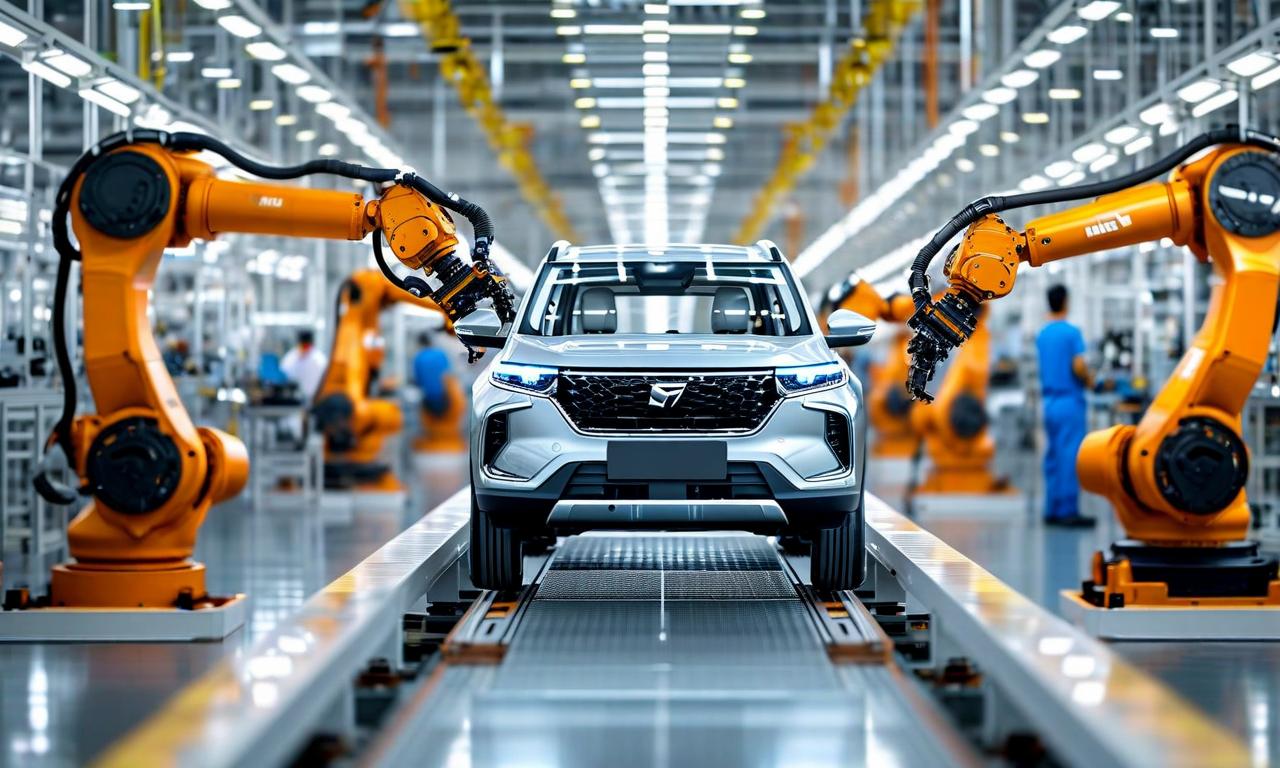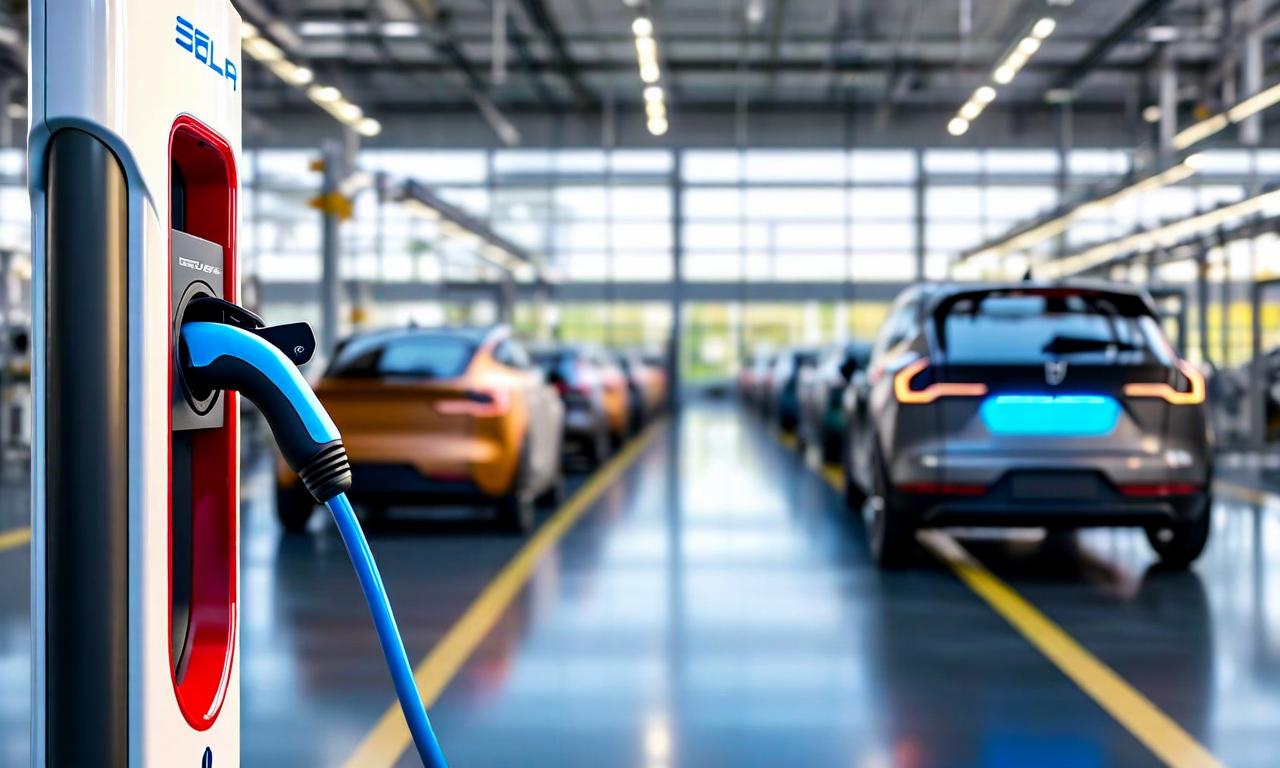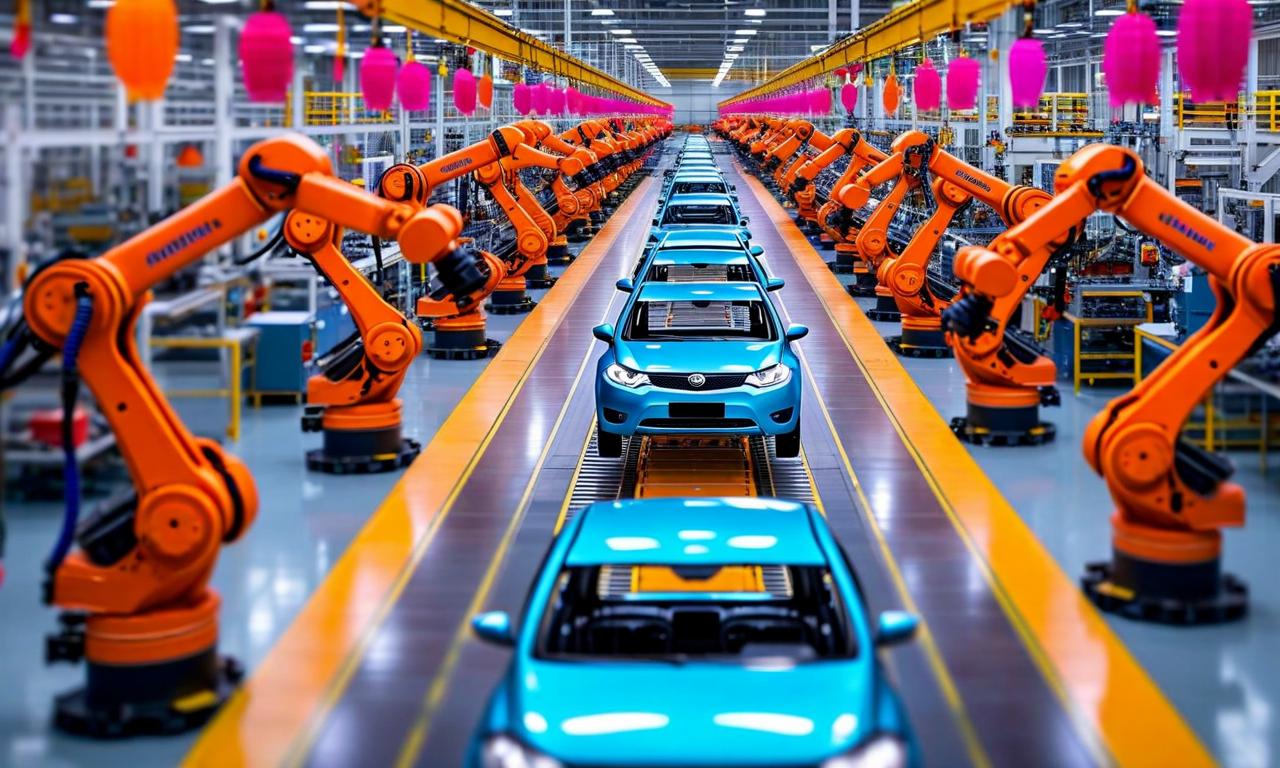Maruti Suzuki Sets 400,000 Car Export Target for FY2025-26, Shares Soar on Potential GST Rate Cut
Maruti Suzuki India targets 400,000 car exports in FY2025-26, anticipating benefits from new trade agreements. The company's stock surged 8% in a day, the biggest gain in five years, fueled by hopes of GST rate cuts for smaller cars. The government is considering reducing GST rates on cars below 1,200 cc from 28% to 18%. Analysts expect this could increase automobile demand by 15-20%, with Maruti Suzuki and Mahindra & Mahindra as potential beneficiaries. The stock traded 7.30% higher at ₹13,884.00, with a year-to-date increase of 24.00%.

*this image is generated using AI for illustrative purposes only.
Maruti Suzuki India , the country's largest carmaker, has set ambitious export targets and shared views on trade policy reforms, while its shares surged by 8% in a single day, marking the biggest gain in five years.
Export Ambitions and Trade Policy Views
Maruti Suzuki's Co-Chairman outlined the company's export ambitions, targeting 400,000 car exports in FY2025-26. The company expects new trade agreements to create market opportunities. The Co-Chairman believes that opening trade borders will enhance efficiency, market growth, and introduce competition, leading to reduced prices and greater affordability for consumers. He anticipates free trade agreements to benefit Indian exports rather than just imports.
Potential GST Rate Cut
The recent stock rally was fueled by hopes of a potential rationalization in Goods and Services Tax (GST) rates for smaller cars. Sources indicate that the government is considering reducing GST rates on cars with engine capacity below 1,200 cc from the current 28% to 18%. Similar proposals are also being considered for hybrid passenger vehicles.
The Co-Chairman stated that changes to consumption tax will boost the competitiveness of Indian products, calling India's GST tax rationalization a 'major improvement' for the economy.
Market Impact and Analyst Views
The news of potential GST cuts has sparked optimism among investors and analysts. Morgan Stanley noted that the automobile sector contributes about 14.00% to overall GST collection and expects Maruti Suzuki and Mahindra & Mahindra (M&M) to be the biggest beneficiaries of any rate reduction.
Nomura, another prominent financial services group, believes that a 10.00% reduction in GST could potentially increase automobile demand by 15-20%, further boosting the sector's prospects.
Stock Performance
Following the news, Maruti Suzuki's shares traded 7.30% higher at ₹13,884.00. The stock has shown strong performance this year, with a year-to-date increase of 24.00%.
Analyst Recommendations
The positive sentiment is reflected in analyst recommendations as well:
| Recommendation | Number of Analysts |
|---|---|
| Buy | 36 |
| Hold | 8 |
| Sell | 2 |
Out of 46 analysts covering Maruti Suzuki, an overwhelming majority of 36 have issued buy ratings, indicating strong confidence in the company's future prospects.
The potential GST rate cut, combined with Maruti Suzuki's ambitious export targets and positive outlook on trade liberalization, could provide a significant boost to the company and the broader automotive sector. However, investors should note that these are still expectations, and the final decisions rest with the government and the company's performance. As always, market participants are advised to keep a close watch on official announcements and consider their investment decisions carefully.
Historical Stock Returns for Maruti Suzuki
| 1 Day | 5 Days | 1 Month | 6 Months | 1 Year | 5 Years |
|---|---|---|---|---|---|
| -3.16% | -3.93% | -5.62% | -2.22% | +16.21% | +105.10% |



































